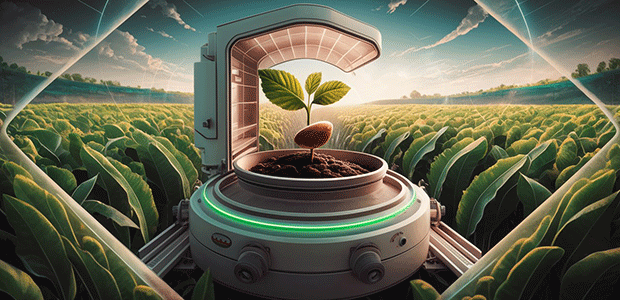
EIT Food announces new cohort of its Seedbed Incubator programme
Leuven - EIT Food, the global food innovation community, has announced its new cohort of novel innovations for its Seedbed Incubator, one of its prestigious entrepreneurship programmes. EIT Food is supported by the European Institute of Innovation and Technology (EIT), a body of the European Union.
The EIT Food Seedbed Incubator is a six-month equity-free programme, which identifies and validates the commercial potential of Europe’s most promising IP-backed innovations, to launch sustainable and scalable agrifood-tech ventures across Europe.
It is open to aspiring entrepreneurs and technology developers (both professional and academic), who are looking to validate whether there is a market need for their innovation. Seedbed works with leading European universities and research centres to strengthen the innovation ecosystem and bridge the gap between academic research and practical applications that benefit society. This year, 15 of the chosen innovations arise from European research outputs, alongside eight aspiring entrepreneurs and 27 newly formed startups.
Over 300 applications from across Europe were evaluated by experts from the agrifood sector to identify the most promising new innovations that aim to drive impact towards EIT Food’s three missions: Healthier Lives Through Food, A Net Zero Food System, and Reducing Risk for a Fair and Resilient Food System.
The chosen innovations from across Europe include:
Mission one: Healthier lives through food
Little Guts (Turkey) – which aims to solve gut health problems in babies and toddlers by offering baby foods made with fermented upcycled fruits and vegetables that are enriched with pre-, pro-, and post-biotics and delivered in proprietary biobased packaging.
Peakaroma (Switzerland) – which promotes healthy eating by improving the taste profile of food while minimising salt, sugar, and calories.
Circular Powder (Spain) – which produces alcohol-free and antioxidant-rich powders from surplus wine and upcycled wine residues, catering to health-conscious consumers seeking new functional options, promoting health, circularity, and longevity.
Prozymi Biolabs (Scotland) – which aims to enzymatically remove immunogenic parts of gluten to enable production of gluten-free bread made from wheat, simplifying the process for bread producers and preserving the bread's traditional texture and flavour for consumers.
Mission two: A net zero food system
BioAlva (France) – which provides high-quality, plant-based seafood alternatives made from seaweed and beans, addressing overfishing and offering sustainable, nutritious options for health-conscious consumers and eco-friendly collective catering.
Change Bio (UK) – which upcycles waste methane into proteins, with the goal of making them less expensive and carbon negative.
FORMeat (Germany) – which aims to revolutionise cultured meat production by providing a scalable and cost-effective solution that replicates the texture and taste of traditional meat, benefiting consumers, the environment, and animal welfare.
FlockWise (Denmark) – which provides AI-driven advice/mentorship, management alerts, and market access to African small-scale poultry farmers, addressing educational and market gaps to enhance productivity and income sustainability.
Mission three: reducing risk for a fair and resilient food system
GAPPO (Ukraine) – which is making food traceability and responsible farming an easy and comfortable business routine through an app that provides automated food traceability reports in one click.
Mycofarming (Netherlands) – which aims to solve the root cause of the nitrogen crisis – nutrient runoff in agriculture – by employing fungal mycelium and its enzymatic properties to break down pollutants in water and bioaccumulate their harmless constituents.
OLONPHOS (Greece) – which offers an ultrasensitive, highly selective, photonic biosensor of toxic agents in food, water and the environment.
Pack Away (Sweden) - an edible, water-solvable, home compostable packaging made from algae, preserving food freshness and suitable for dry or cold storage, which addresses global microplastic pollution.
Each chosen innovation has undergone a thorough and comprehensive evaluation process to assess its innovative potential, tech and commercial viability, hypothetical business model, unique selling point, and commercialisation potential.
The new cohort will gain lifetime access to the world’s largest and most dynamic food innovation community, with the chance to connect and test their innovations with 100+ industry-leading corporates, research partners, and agrifood specialists. They will also receive support with establishing if there is a viable market need and evaluating the scale of commercial potential, as well as access to networking events, training, and 1:1 coaching.
Lukxmi Balathasan, EIT Food Seedbed Incubator Programme Lead, said: "EIT Food’s Seedbed Incubator cohort for 2024 includes some of Europe’s most exciting innovations – with brilliant new ideas and approaches that are addressing the wide range of issues facing the food system today. From boosting the health of consumers and improving crop yields, to finding sustainable packaging solutions and diversifying plant-based protein sources, innovation has a critical role to play in our efforts to transform the food system towards a future which is fit for people and planet.”

